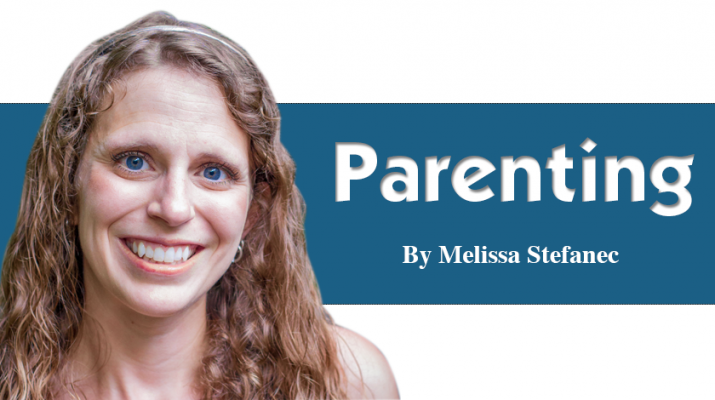By Melissa Stefanec
MelissaStefanec@yahoo.com
In these uncertain times, it’s easy to rely on an old-time parenting hack. It’s the one that allows us to perpetuate a child’s belief in Santa Claus. It’s the one that lets us tell the kids a beloved family pet went to live on a beautiful farm in the country. It’s faithful tactic — tried and true. It’s a white lie, and it’s a go-to for many parents during these unprecedented times.
Buying sanity
Whether you are 3 or 93, current affairs leave us with more questions than answers. This puts parents in a precarious spot. We can’t answer many of our children’s questions with anything but ambiguities. Kids don’t like ambiguities. (And, kids aren’t the only ones who don’t like them; I dedicated my entire column last month to stunted grownup know-it-alls.)
Kids don’t like hearing “I don’t know” or “I’m not sure” regarding what’s for dinner, let alone in response to their questions about birthdays and get-togethers. So, many parents resort to telling their kids white lies. They want to give them hope, sanity and certainty during a time desperately lacking in such commodities. The problem is, a white lie is still a lie. And, as with any lie, it will be exposed.
The truth will hurt
Throughout the pandemic and racial tensions, I’ve been age-appropriately honest with my kids. I’ve been very careful to avoid making promises that I’m unsure if I will be able to deliver on. I’ve been telling them “I don’t know,” “it’s complicated” and “I can’t make any promises” almost as much as I’ve been saying “stop fighting” or “no more screen time.”
However, I do something else when I offer them ambiguity or uncertainty, I explain why I am being vague or non-committal. Similarly, when I want to tell them a white lie about the racial divide in our society, I challenge myself to tell the truth. I keep explanations age appropriate, but it’s my firm belief honesty earns respect and drives change, even if it hurts a little.
Prolonging lies hurts more
As much as the truth hurts, I think white lies hurt more. Even worse, white lies have the potential to morph any parent into something counterproductive: untrustworthy. Most of us teach our children how integrity is integral to character. If we tell our children lies, even small ones, we teach our children unintended lessons.
Trading short-term pain for long-term gain
It’s easier to placate our children than it is to coach them on how to be comfortable with uncertainty. We want them to feel safe and experience a level of predictability in their lives. It’s easier to tell our kids they will see all their school friends in the fall than it is to explain the volatility of a national pandemic.
However, as easy as it is to offset long-term pain with short-term gain, its ease is short-lived. We are kicking our can of problems to a dark and distant place. If we think it’s hard for children to understand the uncertainty surrounding current events, just imagine how hard it will be to navigate those same events with a heaping helping of unmet expectations plopped on top. If we avoid hard truths now, we increase our children’s (and ourselves) future difficulties.
The art of incremental truth
In a world where people seem to want everything to be black and white, I want to stress that truth telling is not an all-or-nothing scenario. Parents can be honest with their children and still not give them the whole picture. We have to speak to our children in ways that are developmentally appropriate. If we give them too much or overly complicated information, they won’t be able to process it.
There’s no cheat sheet that tells you exactly “how much is too much” when it comes to global pandemic-speak. There aren’t any guidelines from the American Academy of Pediatrics on discussing systemic oppression with a 5-year-old. Every kid is different, and we have to respect their boundaries.
That’s where the art of incremental truth comes into play. When I want to talk to my children about a difficult topic, I start small. I make sure they are engaged. I monitor their facial expressions and body language. I encourage them to ask questions. When they start to withdraw, I stop talking. I circle back when they are ready and start the whole process over again.
Building character
Our children will have to navigate a complicated and difficult world. We owe it to them to grow their emotional quotient (EQ) so they can thrive. By telling our children white lies, we deny them the opportunity to build character. EQ isn’t just about the golden rule or doing the right thing, it’s about coming through difficult circumstances as a better human being.
When we protect kids with the truth, we give them the strength they need to survive in uncertain times. We also give them the resilience needed to thrive when the storm passes.

